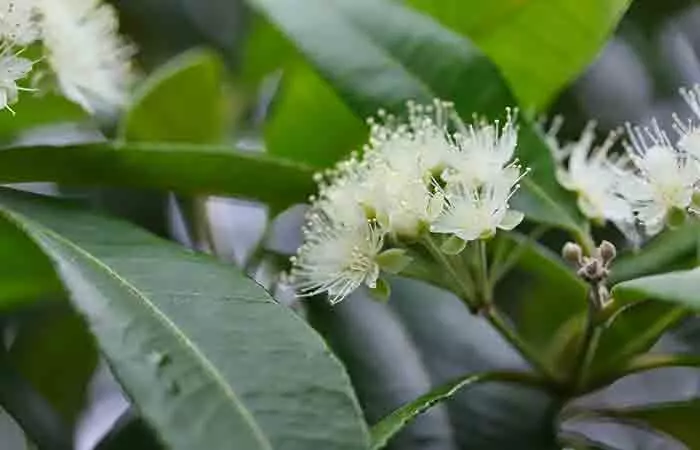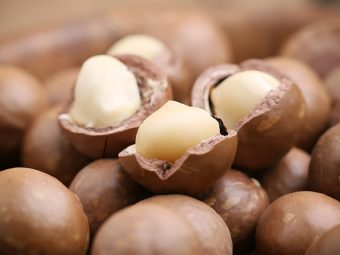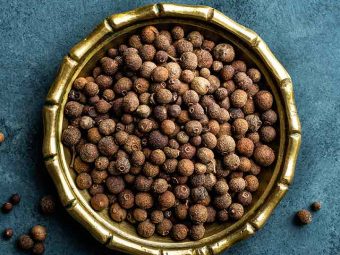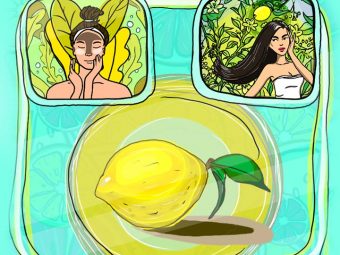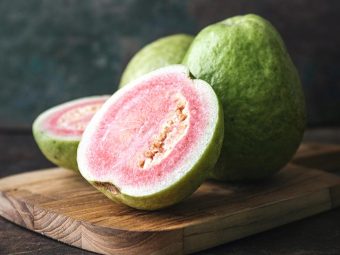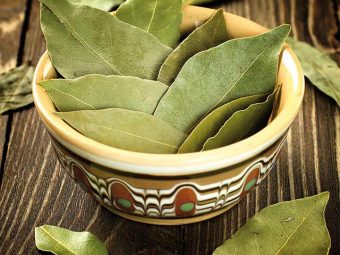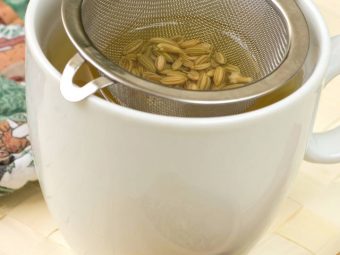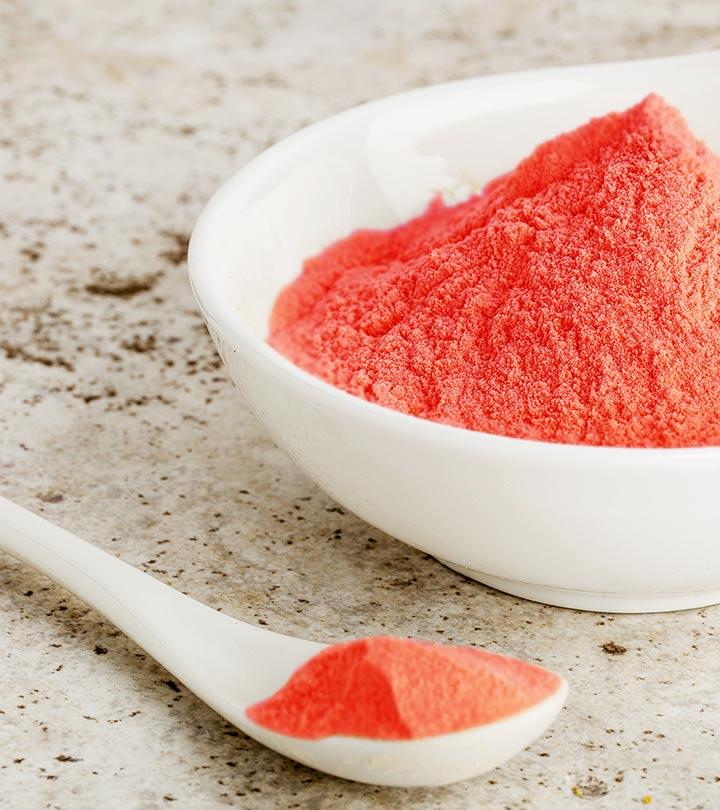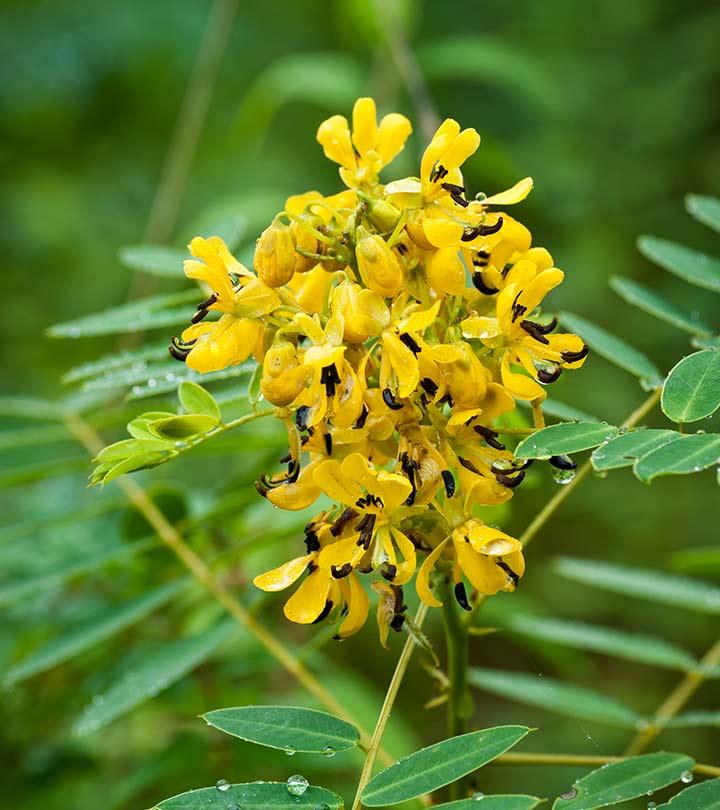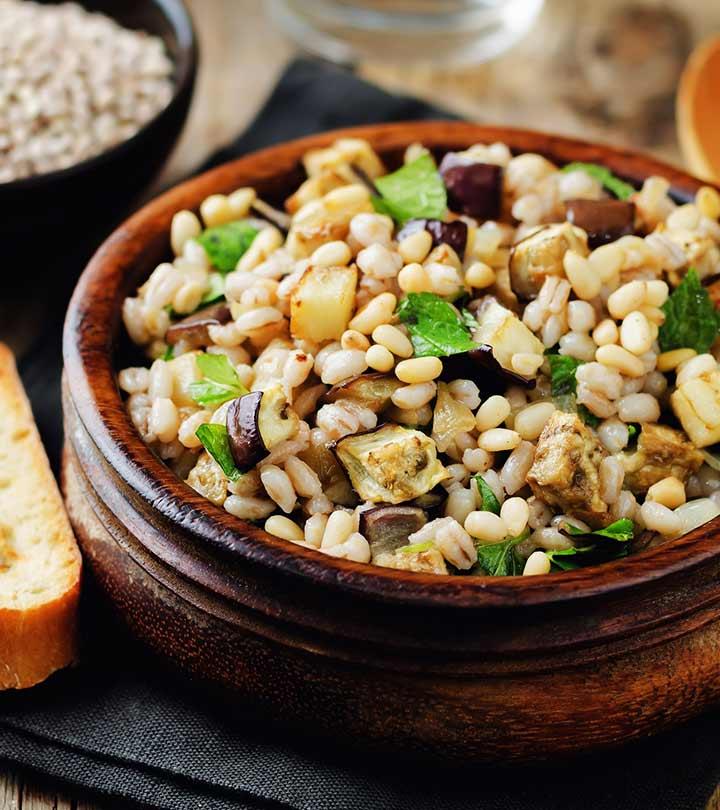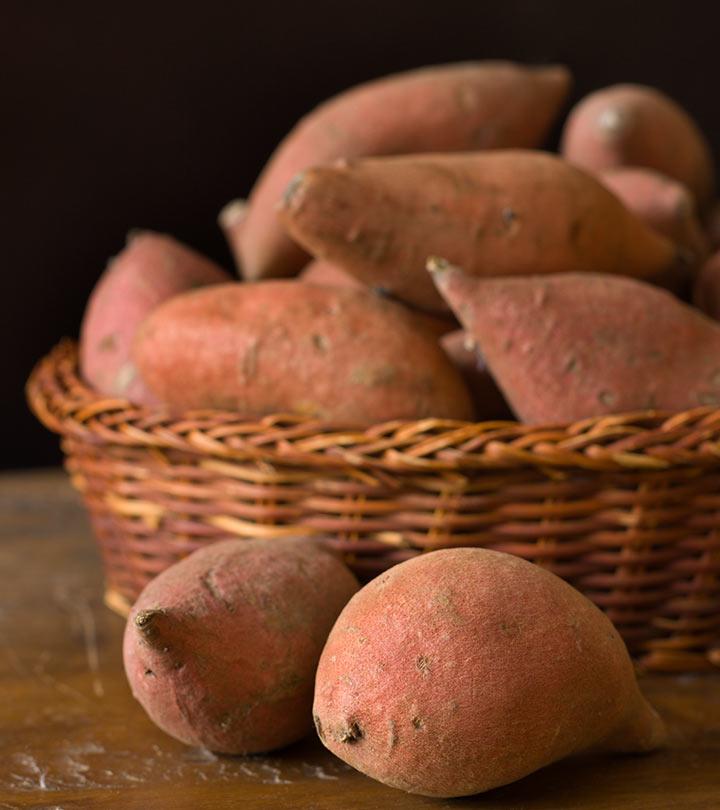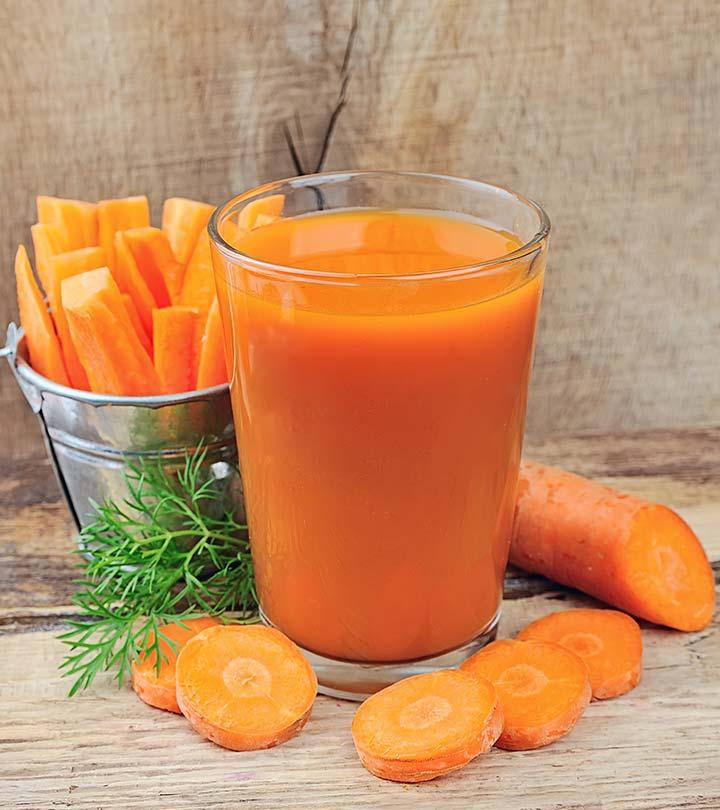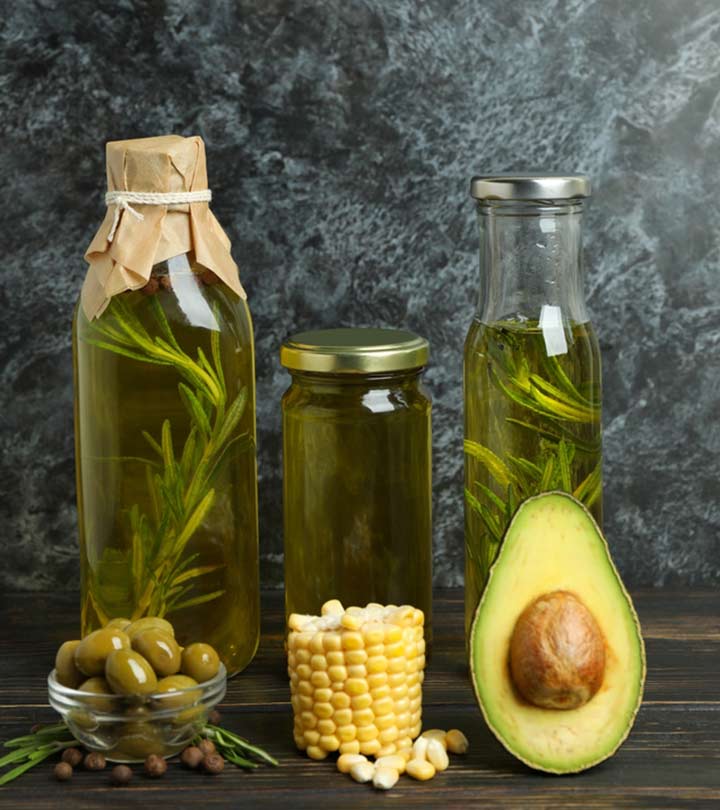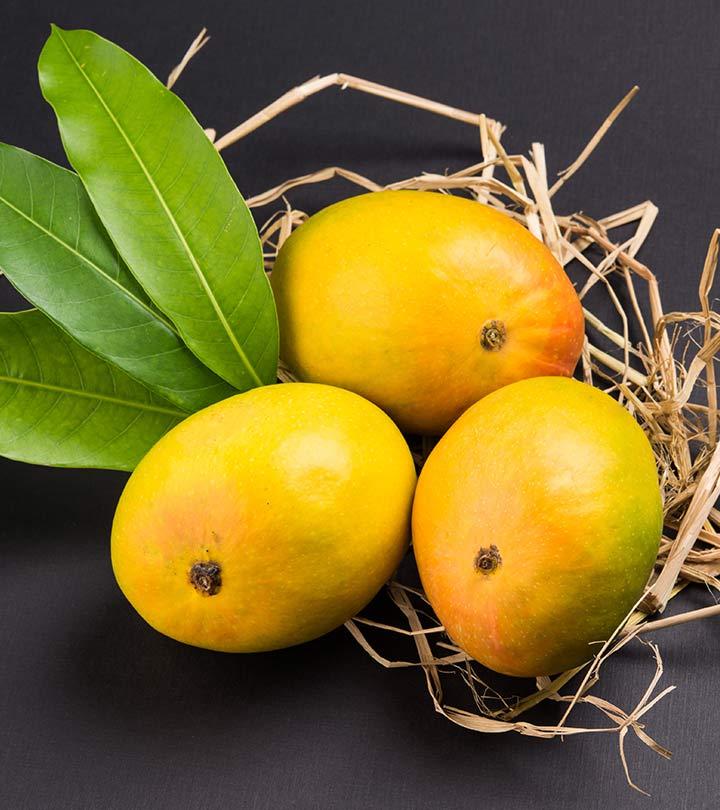22 Amazing Health Benefits Of Lemon Myrtle
You’ll be surprised to learn how this flavor enhancer may benefit your health and appearance!
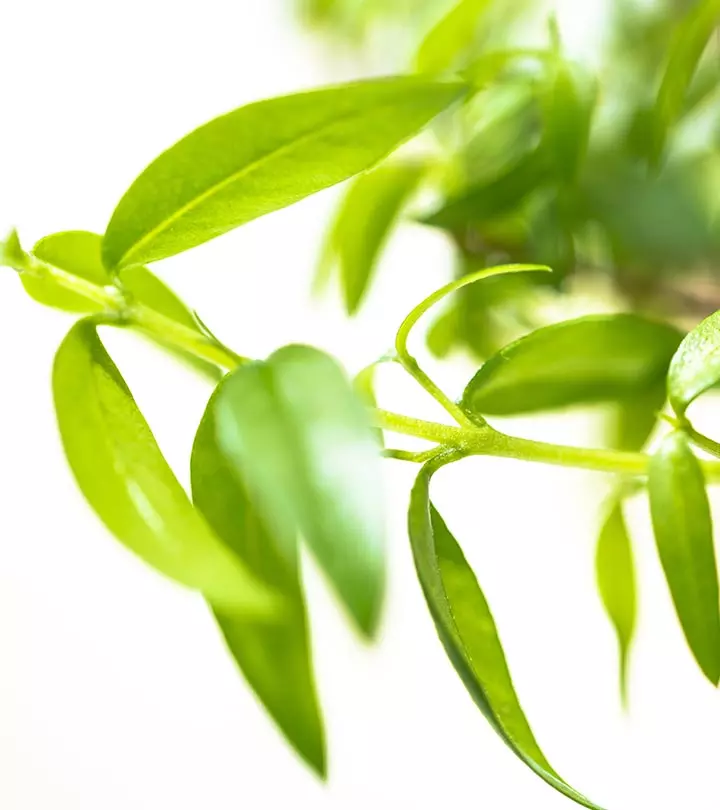
Image: Shutterstock
Lemon myrtle has been used across several dishes in several cuisines for its distinct aroma and flavor. Native to Australia, lemon myrtle is a bush medicine that benefits your health by reducing acne and pimples, boosting your immune system, and fighting infectious diseases. In this article, we take a look at the several benefits of lemon myrtle and a few recipes you can try at home.
 Know Your Ingredient: Lemon Myrtle
Know Your Ingredient: Lemon MyrtleWhat Is It?
It is a flowering plant also referred to as the “Queen of the lemon herbs”.
What Are Its Benefits?
Helps in treating sinus, bronchitis, acne, depression, and digestion-related issues.
Who Can Use It?
People with sinusitis, bronchitis, and influenza can consume it.
How Often?
Consume it in moderation. Please consult a doctor for an exact dosage
Caution
Children and pregnant women should avoid using lemon myrtle essential oil.
In This Article
Lemon Myrtle – A Brief
Lemon myrtle (Backhousia citriodora) is basically a flowering plant that is a part of the Australian flora. This lemon myrtle tree grows up to a height of 60 feet. Other common names are sweet verbena tree, sweet verbena myrtle, lemon scented verbena, and lemon scented backhousia.
As the names say, it is heavily aromatic and has a characteristic taste. It contains about 90-98% of citral. It also contains minerals like calcium, zinc and magnesium in good amounts., as well as vitamins A and E.
Lemon myrtle’s culinary uses enhance flavour and aroma in food. It is used in making dips, sauces, salads, curries and cooking chicken, fish, prawns, etc. It is also used in confectionaries for making breads, cakes, desserts, etc.
Apart from food it is used in skin care products like lotions, lip balms, etc. It is also used in hair care products like shampoos and conditioners. A part of alternative medicine, it is consumed as a beverage, like tea, due to its therapeutic values.
 Trivia
TriviaBenefits of Lemon Myrtle
1. May Help Manage Sinus Infection
If you are having sinusitisi XA condition in which the air-filled cavities around the nasal passage become inflamed due to infection, allergic reaction, and cold. problem, then Lemon myrtle oil can be of great help. This is because lemon myrtle has anti-inflammatory properties that help in reducing the inflammation of the nasal passage while its anti- infection property combats infection that causes sinus problem.
2. May Treat Bronchitis
Lemon myrtle essential oil has been found effective in the treatment of bronchitis. Since bronchitis is the inflammation of the mucous membrane in the bronchial passage, the use of lemon myrtle oil can reduce the inflammation as well as fight the infection, which is the cause of bronchitis.
3. May Reduce Indigestion And Gastrointestinal Disorders
Lemon myrtle has been found helpful in treating indigestion and gastrointestinal disorders like bloating, etc. Certain properties of lemon myrtle help in stimulating the digestion process. You can consume lemon myrtle in oil form, grounded form, as a spice or tea.
Lemon myrtle juice helps promote digestion and relieve stomach cramps. It contains pectin, which aids in the breakdown of food into smaller particles that can easily pass through the digestive system. Pectin also promotes healthy intestinal flora.
4. May Treat Molluscum Contagiosum
Molluscum contagious is a viral infection of the skin that causes red-colored bumps or lesions on the skin. Studies have shown that Lemon Myrtle is a natural way of treating molluscum contagious. The anti-viral property of lemon myrtle makes it a remedy to treat molluscum contagious.
 Did You Know?
Did You Know?5. May Relieve Sore Throat
A sore throat can be very painful and hard to bear. The antiseptic, anti-inflammatory and antibacterial properties of lemon myrtle help in treating sore throat by killing bacteria and reducing inflammation. You can take lemon myrtle essential oil with honey for relief from sore throat.
A blogger wrote they caught the flu bug and used lemon myrtle to soothe their scratchy throat. They share in one of their blog posts, “ When I ran out of the prescribed antiseptic mouth gargle and lozenges, I brewed some fresh lemon myrtle tea. Ahhh, lovely. Why didn’t I think of it earlier(i)?”
6. May Reduce Acne
Acne is a big problem, especially for girls. Lemon myrtle is a wonderful natural remedy for acne problem. It is helpful in treating oily skin that is one of the main causes of acne. Use of lemon myrtle essential oil can help you in getting rid of acne. You can add its oil in your lotion also.
7. May Help Manage Depression
Lemon myrtle can be your stress reliever. It provides a calming effect by inducing better sleep, promoting relaxation, filling you with positive feelings, etc. You can massage your foot with lemon myrtle oil. It can be used for aromatherapy by adding the essential oil in aromatic lamps to soothe the mind and uplift your mood.
8. May Improve Oral Health
Lemon myrtle is a part of traditional medicine used for treating oral health issues like ulcers, irritation, tooth problems, etc. The use of this herb cleanses the mouth thus providing protection from various infection causing bacteria and viruses. You can add lemon myrtle powder in your toothpaste for regular use. It can also be used in tea.
9. May Boost The Immune System
A healthy immune system means fewer health issues because of a stronger immune system that is vital to combat diseases. Consumption of lemon myrtle strengthens your immune system, thus providing you protection against several health issues. You can use lemon myrtle in the form of tea, powder or oil for benefitting your immune system.
10. May Reduce The Risk Of Diseases
Lemon myrtle has antioxidant properties that eliminate free radicals from your system. Free radicals are linked to cell and DNA damage and may cause diseases like Alzheimer’s diseasei XIt is a progressive neurological disorder that causes brain cells to shrink, affecting memory and other cognitive functions. , cancer, diabetes, arthritisi XA condition affecting the joints and causing pain, stiffness, swelling, and inflammation, which may worsen with age. , tumors, heart diseases, etc.
11. May Fight Bad Odor
The refreshing aroma of lemon myrtle helps you in getting rid of bad body odor and bad breath. Its antimicrobial property prevents body odor by killing odor causing microbes. You can add lemon myrtle oil to your bathtub or apply a few drops of it to your body. To get rid of bad breath, you can add a few drops of lemon myrtle oil to water and gargle it.
12. May Reduce Headache
If you are troubled by a headache, lemon myrtle can help in providing relief. The soothing aroma of lemon myrtle causes headaches. You can inhale steam by adding lemon myrtle for a headache remedy. Another way of treating headaches is to massage your temples with lemon myrtle essential oil.
13. May Treat Athlete’s Foot
Athlete’s foot is a fungal skin infection, which causes scaly, red itchiness in the foot sole and between toes. The anti-fungal property of lemon myrtle fights this infection by killing such fungus.
14. May Ease Asthma Symptoms
Lemon myrtle helps in combating asthma. Asthma is a lung disease in which the air passage swells and narrows causing difficulty in breathing. Steaming with lemon myrtle in water can be helpful in easing asthma problems.
15. May Help Manage Rheumatoid Arthritis
Rheumatoid Arthritis is one of the common bone joint problems faced by people. It is an inflammatory disorder that results in painfully swollen joints. The anti-inflammatory property of lemon myrtle helps in reducing inflammation and gives relief. In case of rheumatoid arthritis, you can massage your joints with lemon myrtle essential oil for relief.
16. May Reduce Cramps
A cramp can be defined as an involuntary muscle contraction that causes pain. Lemon Myrtle helps in reducing muscle cramps and menstrual cramps. The chemicals found in it help the muscles to relax, thus reducing the cramp to a significant extent.
17. May Soothe Insect Bites
Lemon myrtle oil can be used to treat insect bites. Its application soothes the affected area and also reduces inflammation. Lemon myrtle can also be added to any lotion to prevent insect bites as it acts as an insect repellant because of its strong aroma.
18. May Improve Sleep
Lemon myrtle is particularly beneficial for those who cannot sleep peacefully. The relaxing effect of this herb can calm your mind and promote peaceful sleeping. For this purpose you can bath by adding lemon myrtle oil in a bathtub before going to sleep or drink lemon myrtle tea before bed.
19. May Fight Influenza/ Flu
The anti-viral property of lemon myrtle helps in treating influenza as well. Taking steam with few drops of lemon myrtle oil or leaves may help you in fighting influenza.
20. May Eliminate Accumulated Mucus And Phlegm
Sometimes our body starts producing excess mucus and phlegm due to cold, flu or infection. This phlegm accumulates in the lungs and respiratory passage causing difficulty in breathing. Steaming with a few drops of lemon myrtle oil in water can be helpful in this regard by eliminating excess accumulated phlegm and mucus.
21. May Heal Skin Injuries
Myrtle contains anti-inflammatory and antimicrobial properties, which help in reducing the damage caused by skin burns (1). Lemon myrtle, too, possesses similar properties which may help in managing skin injuries. However, further research is required in this area.
22. May Promote Weight Loss
Even though this is not scientifically proven, lemon myrtle is also known to help in weight loss. According to anecdotal evidence, lemon myrtle may help improve metabolism, which may help your body burn calories more efficiently and lose weight. You can prepare lemon myrtle tea and consume it every day to improve your metabolism.
Recipes With Lemon Myrtle
As stated above, lemon myrtle provides an array of health benefits and its infusion imparts a distinct taste and aroma to your dishes. Given below are a few lemon myrtle recipes that you can try.
1. Lemon Myrtle Cheesecake:
This yummy cheesecake combines the flavor of lemon myrtle and the crunchiness of nuts. It can be used as a dessert.
Ingredients For Base:
- 1 Tablespoon Wattle seed
- 1 cup plain flour
- ½ cup sugar
- 1 cup macadamia nuts
- 120 ml Macadamia Oil
Ingredients For Filling:
- 2 Tablespoons Lemon Myrtle
- 500 gm cream cheese
- 1 cup sugar
- 3 large eggs.
Method:
- Blend all the above-given base ingredients and bake them in a preheated oven at 180 degrees.
- After baking, let this crust rest until it cools down at room temperature.
- Now blend all the filling ingredients until the batter gets fluffy and smooth.
- Pour this batter into the crust and bake again for 20 minutes.
2. Lemon Myrtle And Macadamia Biscuits Recipe:
Biscuits are light and easy snacks to have in between meals. And when they are prepared from lemon myrtle you get a bonus of health benefits. You can prepare these biscuits by trying this simple recipe given below.
Ingredients:
- 200 g margarine
- 100 g white sugar
- 225 g macadamias, whole or chopped
- 225 g self-raised flour
- 1 tsp ground lemon myrtle
Method:
- Blend margarine and butter.
- Add macadamias and mix until they distribute evenly in the mixture.
- Add ground lemon myrtle and flour to make the resulting mixture crumbled, sticky and easily mouldable.
- Make flat balls using this mixture and bake them for 15-20 minutes until you get golden brown colored biscuits.
3. Crispy Prawns With Lemon Myrtle:
If you think lemon myrtle can only be used in desserts, you can have a look at this recipe of prawns cooked in lemon myrtle powder!
Ingredients:
- One tablespoon of lemon myrtle ground
- One teaspoon of sweet paprika, smoked
- Chilli Powder, optional
- Salt
- 1/2 cup cooking oil
- Two fresh chilies, finely chopped
- Lime wedges for serving
Method:
- Toss or marinate the prawns with a mixture of rice flour, lemon myrtle powder, paprika, chili powder, and salt.
- Heat oil in a frying pan and cook the prawns until they become crispy.
- Drain on an oil absorbent paper and serve hot with lemon wedges.
4. Lemon Myrtle Iced Tea:
This aromatic tea is a tasty and healthy alternative to your regular tea. Given below is the recipe.
Ingredients:
- Lemon myrtle leaves
- Water for boiling
- Sugar or honey
- Lemon
- Ice
Method:
- Boil lemon myrtle leaves in water for 10 minutes.
- Let the boiled water rest until the leaves get infused.
- Strain the water and add sugar or honey for sweetening.
- Dilute with water if necessary, add a few drops of lemon juice, and serve chilled by adding ice to it.
5. Lemon Myrtle Chicken:
If you are a chicken lover, you can try out this exotic dish using lemon myrtle for your meals.
Ingredients:
- 6 large cloves garlic
- 6 sprigs fresh lemon myrtle
- 6 chicken thigh chops
- 60 ml olive oil
- 60 ml chicken stock
- 1 lime/lemon
- Salt & pepper to taste
Method:
- Grind lemon myrtle sprigs and garlic cloves in olive oil.
- Marinate the chicken pieces with this ground paste for at least 10 minutes.
- Heat some oil in a pan and fry the chicken until it turns golden brown.
- Add chicken stock and lime or lemon. Cook for 20 minutes and serve hot.
6. Lemon Myrtle Shortbread:
This crispy bread will definitely please your taste buds. Given below is the recipe for lemon myrtle shortbread.
Ingredients:
- 2 cups plain flour
- 2 tablespoons rice flour
- 1/2 cup white sugar
- 1 teaspoon Ground Lemon Myrtle (or 2 teaspoon if you prefer a stronger flavor)
- 220 g unsalted butter softened
Method:
- Sieve all the ingredients except butter.
- Mix them well.
- Then add butter and make small balls.
- Now roll these balls flat (1cm).
- You can give the desired shape to these by using a cutter.
- After this, put them on a baking tray or use baking paper or a grease tray.
- Bake them at 60°C for 25- 30 minutes.
- Serve them when they cool down.
7. Spicy Lemon Yogurt Dip:
Here is the recipe for a yummy spicy lemon yogurt dip which you can have with breads, fish, prawns, etc.
Ingredients:
- 400 g Greek yogurt
- Freshly ground black pepper
- 1 tsp crushed lemon myrtle
- Grilled strips of pitta bread, to serve
Method:
- Take yogurt in a bowl and blend well.
- Add black pepper powder, and lemon myrtle and mix well.
- Serve the dip with grilled bread strips.
Lemon myrtle adds a dash of enticing aroma and flavor to many savory dishes. It is loaded with beneficial nutrients, vitamins, and minerals. This rich nutritional profile helps promote overall health. Lemon myrtle has many benefits and has been actively used in Indigenous medicine. It eases gastrointestinal issues, helps relieve depression, and helps you sleep. It boosts immunity and oral health. Lemon myrtle may also help ease respiratory issues such as bronchitis and flu and clear up the respiratory tract. In all, lemon myrtle is an herbal medicine that helps maintain digestive health, respiratory health, skin health, hair health, and oral health. However, overuse may have unpleasant side effects. If you experience any adverse effects, limit its use and seek medical advice.
Infographic: Top 6 Reasons To Consume Lemon Myrtle
Lemon myrtle leaves are widely used for their refreshing citrus aroma. Apart from enriching the flavor of your beverages and desserts, they can help you stay healthy in many ways. We have compiled a list of the top reasons you should consider incorporating lemon myrtle into your daily routine. Check out the infographic below to learn more.

Illustration: StyleCraze Design Team
Frequently Asked Questions
Does lemon myrtle have healing properties?
Yes. Lemon myrtle has antibacterial, antiseptic, and anti-inflammatory properties that help heal many health issues.
Is lemon myrtle poisonous?
No. Lemon myrtle is safe to consume and is packed with many beneficial properties.
Is lemon myrtle a superfood?
While the nutritional profile of lemon myrtle is impressive, it is not considered a superfood.
Key Takeaways
- Lemon myrtle can be used in dishes like shortbread and cheesecake to improve its flavor and aroma.
- Due to its therapeutic benefits, lemon myrtle is also frequently used to make beverages like tea.
- Lemon myrtle can also ease digestive problems, aid in the treatment of depression, and promote sleep.
- Due to its anti-inflammatory and antiseptic properties, it works well in the treatment of diseases like sinusitis, bronchitis, and influenza.
- It is utilized in multiple skin and hair care products like lotions, lip balms, shampoos, and conditioners.
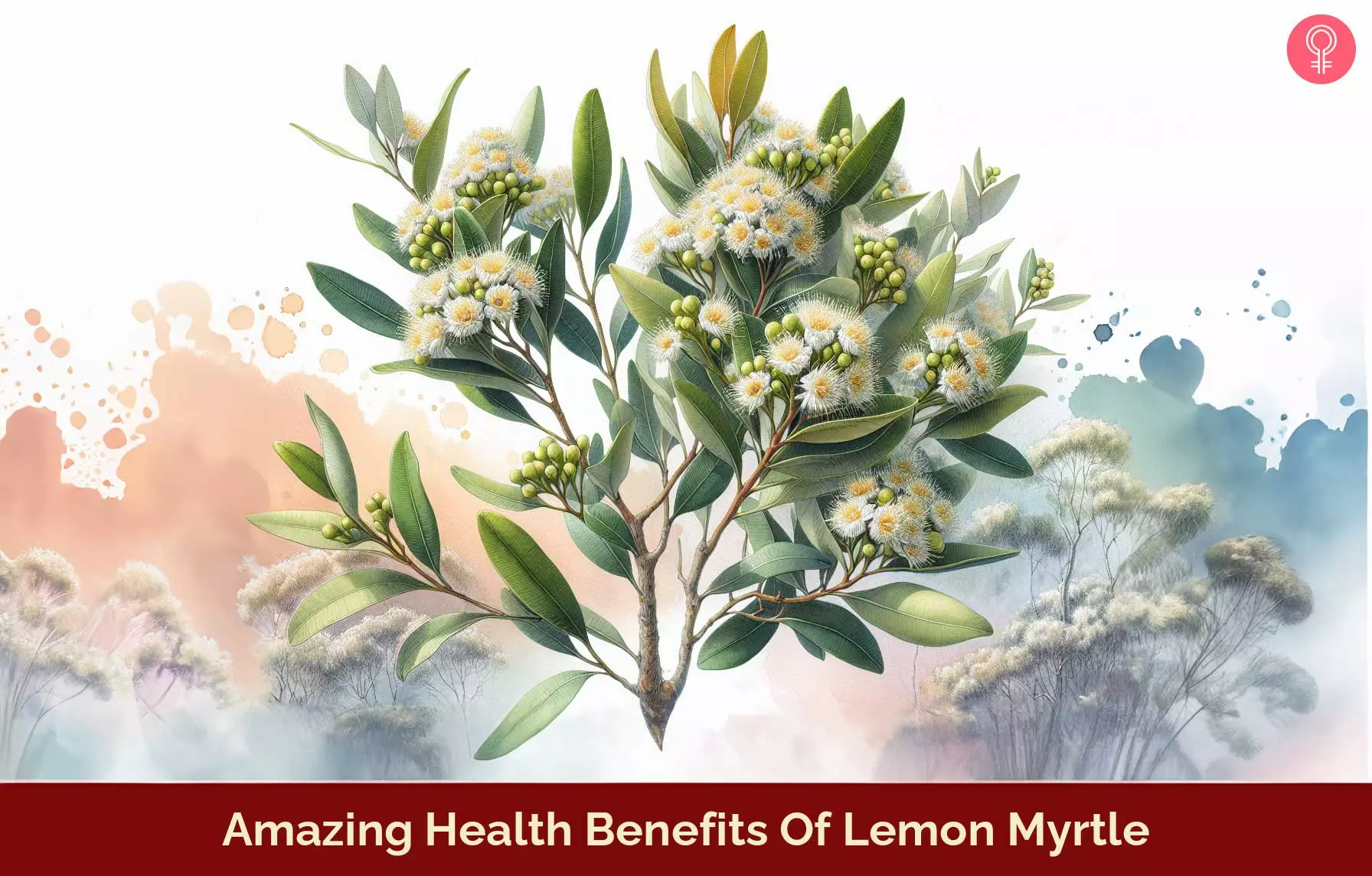
Image: Dall·E/StyleCraze Design Team
Discover the extraordinary benefits of lemon myrtle in the captivating video. Check out this video to help harness the potential of this aromatic herb for your well-being.
Personal Experience: Source
StyleCraze's articles are interwoven with authentic personal narratives that provide depth and resonance to our content. Below are the sources of the personal accounts referenced in this article.
i. Lemon myrtle – Backhousia Citriodorahttps://typicalgardener.wordpress.com/2010/05/22/lemon-myrtle-%E2%80%93-backhousia-citriodora/
References
Articles on StyleCraze are backed by verified information from peer-reviewed and academic research papers, reputed organizations, research institutions, and medical associations to ensure accuracy and relevance. Read our editorial policy to learn more.
- Myrtle: a versatile medicinal plant
https://www.ncbi.nlm.nih.gov/pmc/articles/PMC9933039/




